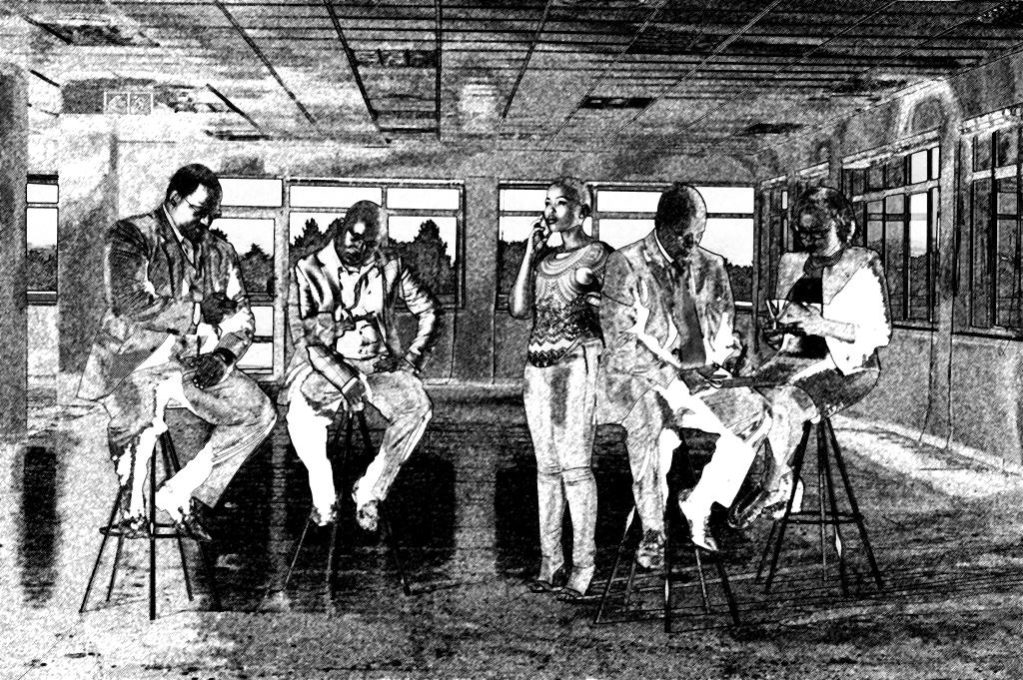You just got paid: your aunt asks for $50 for her routine medical check-up; your cousin needs an extra $30 for her tuition fees; your mother needs $20 for a new dress; your landlord is knocking on your door for his $500. Your remaining $200 is not enough for your car and insurance, young brother’s school trip and for many others who yearn for a better life through your bank balance.
This is the story of black tax that millions across the continent live with. The question is, with economies worsening, is this family support tenable, archaic, or an important part of modern African culture?
Either way, many of those fortunate to be working end up in debt because of the demands of their families.
In these tough times, debt is a growing problem. In South Africa alone, 6,000 people apply every month for debt counselling – simply put, lessons on how to get out of debt.
The South African Human Rights Commission (SAHRC) confirmed over half of South Africa’s consumers are carrying too much debt. For many young, rising professionals, black tax may not be the sole reason – but it doesn’t help.
Loading...
Paul Egan, Managing Consultant at UCT Unilever Institute of Strategic Management, says black professionals are suffering more than most in these difficult times.
“Compared to their white counterparts, who felt less pressure at an early age of their working lives in terms of responsibility beyond oneself, black middle-class are exposed to much responsibility earlier,” says Egan.
Not everyone believes they have to pay.
“Just because you are my extended family doesn’t mean I owe you anything. The only person I can send money to is my mom and that’s it. Finish. Other people can go and make their own money, at the end of the day I work hard to earn my money and I won’t just give it away to people because they’re family. In other words, black tax is a definite no from me,” says Yonela Mgwali, a journalist and South African graduate.
Many share his sentiments but say nothing for fear of family backlash. Many comply privately.
If you google black tax, a name from Zimbabwe will come up: Gerald Mwandiambira, from the South African Savings Institute, who is seen as an expert. He warns that in African families, where everyone claims to have raised you, the bills can weigh heavily.
“Giving back to the community that helped raise you is not black tax, it is one’s moral responsibility that is deeply entrenched in our values as Africans,” says Mwandiambira.
“There was a time when I had no salary as every cent went to black tax,” he chuckles.
“You look after ageing parents, siblings and your own children and this leaves one financially constrained at the end of each month as 80 to 90 percent of your salary goes towards black tax.”
Mwandiambira is one of many who believe financial instruments should be designed to foot the bill.
“Of all financial products in the market today, funeral policies are the only products designed with this in mind. This is a uniquely African situation.”
Single parent homes make it worse. Then there is the allure of success which brings with it the mantle of lender of last resort.
“We put ourselves under pressure once we have vestiges of success,” says Mwandiambira.
Nozipho Mbanjwa is an anchor at CNBC Africa. She has a master’s degree from Stellenbosch University and many family responsibilities.
“I am the eldest of the three girls in my family, I have helped send some to university and I am currently building a house at home. We have a sense of pride when we plough back to our families, we have an understanding of ubuntu (humanity to others) and we are who we are not because of whom we are,” she says.
Mbanjwa believes it is a hangover from apartheid and agrees with Mwandiambira that there is need to work on investment strategies.
“We need to create sustainable structures that allow our families to be entrepreneurial and self-dependable. We need to innovate so we continue upholding our values.”
Tshepo Maota, a young accountant in Johannesburg, calls for improved financial literacy.
“We need to start teaching our people models of investments,” he says.
“Black people need to put in extra hours, compared to their white counterparts, to remain competitive and meet family obligations.”
Lebogang Mokgethi, a postgraduate anthropology candidate at the University of the Witwatersrand in Johannesburg, is also a supporter.
“I don’t want to be the only graduate in my street; it does not mean anything to me. I am playing my role by empowering my family members and high school learners with career guidance and leadership,” she says.
“We have the Italians, the Greeks and the Jewish racial groups who work collectively to help lift families from poverty. Instead of giving money to buy a microwave, we need to invest in small businesses.”
Zweli Mabhoza, a tax advisor and founder of Premier Priority Tax Solutions, sees black tax as a way of managing resources.
“A lot of people complaining about black tax are products of black tax themselves,” he says.
“Sometimes you don’t have to give anything to people who helped raise you but simply replicate what was done for you.”
Black tax, love it or hate it, if you are a young African professional, you are mostly likely to have to pay it.
Loading...
